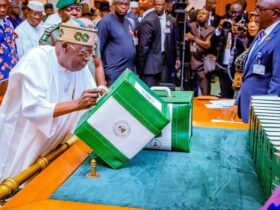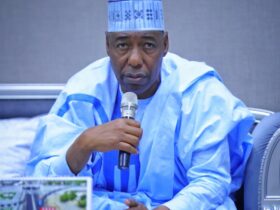The African Development Bank (AfDB) is set to start releasing a $2.2bn fund for the development of Special Agro-Industrial Process Zones in Nigeria (SAPZ).
Director General of AfDB Nigeria Office, Abdul Kamara, made this known during Channels Television’s 2024 End-Of-Year Review with the theme, ‘Focus on the Agriculture Sector, Food Security, Research and AfDB Investments’.
“Specifically from next year (2025), we will see contracts signed and mobilization and construction on site will start in some states. Of course, not all the states will start together,” he said.
He said the money would be used for the development of agro-industrial hubs where processing will happen, aggregation centres and agricultural transformation programmes.
The developmental economist said though the Special Agro-Industrial Process Zones was approved by the AfDB Board in 2021, the project is picking up after startup delays attributed to several factors.
“When you approve a programme, you have to have it signed with the Federal Government, especially of that magnitude. You also have to have it signed with the co-financiers. The Bank had to bring in IFAD (International Fund for Agricultural Development) and Islamic Development Bank as co-financiers,” he said.
Kamara said when the Bank met with some state governors, months back, they agreed on certain actions to accelerate SAPZ. “In all the seven states including the FCT, Cross River, Ogun, Oyo, Kaduna, Kano and Kwara, in each of the states, we are now in conversation with and are publishing the bidding document so that we’ll shorten the process. So, it’s picking up and that is not strange. Projects that are very complex
“That is even why at the African Investment Forum just concluded early this month, we had a pledge from different financiers to the tune of $2.2bn.
“So, the SAPZ is going to happen and it’s going to deliver as much as we have elsewhere.
“The value, give or take, what the Bank is putting in is about one billion dollars. Of course, if you add what others are bringing in, it will be more than that because we are a convener; we bring in others,” he said.










Got a Questions?
Find us on Socials or Contact us and we’ll get back to you as soon as possible.